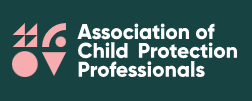You are here
- Home
- Cultures of Listening in Crisis: Introducing ‘dark listening’
Cultures of Listening in Crisis: Introducing ‘dark listening’
- Dates
- Tuesday, November 12, 2024 - 12:00 to 13:30
- Location
- Online

Cultures of Listening in Crisis: Introducing ‘dark listening’ - a participatory research method to enhance professional listening to children and adults in situations of need or risk
Despite decades of research and improvements to UK child protection practice, and repeated declarations to learn from past mistakes, there still are frequent cases where child protection has gone wrong, so much so that it has been described as in permanent crisis (Munro 2017; Parton 2014; Hood et al, 2020; Maglajlic and Ioakimidis, 2020; MacAlister, 2022). Simultaneously the media and politicians are quick to blame individual practitioners/agencies, thereby undermining professional confidence, while long-term austerity has put a significant strain on agencies’ resources. This was shown to affect how effectively practitioners can listen (Turney and Ruch, 2018) and act on what they hear (Motzkau & Lee 2022), indicating this to be a ‘crisis of listening’ within politics/society as a whole, rather than the result of individual failure. The research project introduced in this talk is led by Dr Johanna Motzkau (The Open University) in collaboration with Prof. Michelle Lefevre (University of Sussex) and aims to better understand practices and experiences of listening in child protection, to find a way out of this crisis.
The method of ‘Dark Listening’ is inspired by ‘Audio Obscura’, an artwork by the British poet and artist Lavinia Greenlaw (2011). She defines dark listening as ‘listening to what you cannot hear’, a way of attending to “the point at which we start to make sense of things”. To make us aware of this point/instant, she uses Audio Obscura as an “attempt to arrest and investigate that moment, to separate its components and test their effects” (ibid, 2011, p. 7). By listening to examples from ‘Audio Obscura’ the talk will explain how the method of dark listening is an intervention that temporarily suspends/arrests participants’ sense making and thereby alerts them to the cultures of listening they employ/are embedded, and potentially trapped in, opening them up to scrutiny and transformation (Motzkau & Lee 2022).
The Association of Child Protection Professionals presents:
Lunch & Learn talk by Dr J. Motzkau (The Open University), 12th November, 2024,
Register your interest via the Association of Child Protection Professionals website